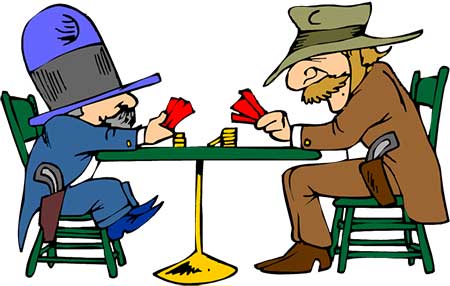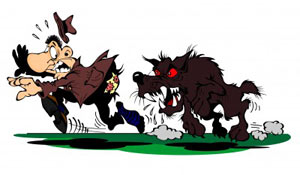
Heads Up Poker Strategy: 3 Tips to Help Win your next Heads Up Battle
Poker Heads Up play is a chance for poker players to get out their whole bag of tricks and showcase their entire repertoire of poker skills such as bluffing, folding, making strategic moves, betting, reading opponent’s cards and so on.
This is a game where you need to play hard and aggressive if you want to win. Remember aggression does not mean that we leave the brain power behind. In fact heads up strategies call for a player to be extremely alert.
Selective Aggression: Know when to Back Down
One strategy of heads up play is to be very aggressive and keep leading out with bets and raising your opponents bets. Unfortunately many players become far too aggressive while playing heads up and do not consider the board and the possible hands that their opponents might have. This leads to a situation where the player wins lots of small pots with their aggressive play, but then loses big when they run into their opponent with a strong hand.
This is why during heads up play you need to be selectively aggressive – you need to use all you skills at reading your opponent and assessing the range of hands they may have and know when to be aggressive and when to back down. The aim is to carry on winning all the small pots, and larger pots where possible, but to avoid taking that big hit, by not running into your opponents trap who may be using your aggressive play to draw you deep into a hand when he is holding something very strong. This requires a lot of concentration and knowledge about the game and the possible outcomes and hands that can beat the one you have.

Position is an Advantage: and you get it every other hand!
Use your position in the game to your benefit. A player, who is the last to play after the flop, has the advantage of having the most amount of information about his or her opponents before they have to act. They can assess the actions of their opponent before they have to make a decision or action and this is a huge advantage over a player who acts first and has to make his move with limited information.
So use this to your advantage by putting pressure on your opponent who is acting first with limited information, make them even more unsure than they already are. This can become a real mind game in heads up play and you should be considering your position and then how you can manipulate the information you are sending out.
This can also be applied in reverse though when you are acting first. It is up to you what information you want to send out and what you want to represent with your actions, whether you want to send information to your opponent that suggests you have a strong hand, even when you don’t, or whether you want to disguise a strong hand you do have.
It’s all about creating a story and making your actions consistent with the story you are trying to present. It takes some practice but once you have mastered this art then it is a huge advantage to be able to present a believable story to you opponent to manipulate him to take the actions that you want him to take and you will be a formidable opponent for anyone to face.
So to recap on this introduction to Heads up play…
It’s important to be selectively aggressive during heads up play. There will be lots of hands during heads up play where neither you nor your opponent have strong hands and you want to be the one picking up most of these small pots.
Keeping your concentration during the fast paced action of heads up can be hard, but is essential as you should be constantly reading your opponents and assessing their possible range of hands in order to avoid being too aggressive when they have a strong hand and taking a big loss which wipes out the profits you have made from picking up all those small pots.
Use your position to your advantage – both early and late positions can be used to your advantage as long as you understand the story you want to present and that your actions are consistent and are believable. If you can master this during heads up play then you can manipulate them in a lot of the hands you play.
If you can work on the above three points and master them then you will have a massive advantage when you find yourself in heads up play.